The harmful effects of alcohol on the human body can account for a very large proportion. A person who drinks alcohol endangers physical and mental health - internal organs are affected, the work of the most important systems that control the human body is disorganized (the effect of alcohol onimmune system is especially dangerous), personality deterioration occurs, which is due to the effect on the human nervous system.
The effects of alcohol on the body affect:
- Liver;
- Brain;
- Nervous and mental system;
- Cardiovascular system;
- Kidney;
- Digestive;
- Immune System;
- Muscles and joints;
- Endocrine system;
- Spleen;
- Respiratory system;
- organs of vision;
- Appearance.
To avoid negative consequences, you first need to know how alcohol affects the human body.
Effects of alcohol on the liver
To find out how alcohol affects the liver, you should find out what its purpose is. The liver is the organ responsible for eliminating toxic substances from the body, and various metabolic processes require its participation. For regular drinkers, it's important to know why alcohol is dangerous for the liver and its effects. Talking about the dangers of alcohol, one can point out that it gradually destroys the liver. Ethyl alcohol that penetrates it will be oxidized, forming a very strong poison - acetaldehyde. Accumulating in the liver, it regulates the organ and disrupts its work.
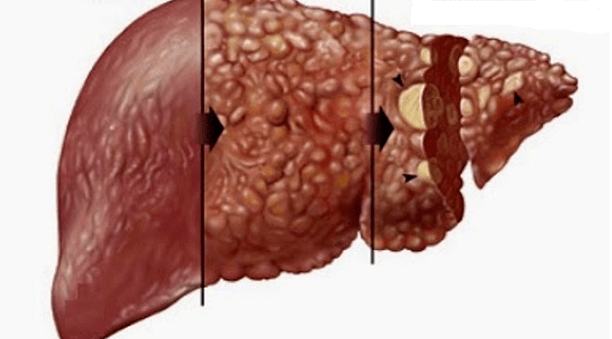
The effects of alcohol on the liver are truly devastating. Liver cells die from alcohol, they are replaced by scar tissue or fatty tissue, so the organ cannot perform its function normally (toxins build up in the body and eventually cause toxicity).
The most serious consequence that alcohol harms the human body with unpredictable consumption is cirrhosis of the liver. With this disease, the structure of the organ begins to change, the size decreases, the vessels become as such: they constrict, the pressure in them increases, blood stagnates. The natural outcome in this situation is rupture of the vessel wall and bleeding, which is the cause of many deaths.
Effects of alcohol on the brain
The effects of alcohol on the body mainly affect the brain. In a state of intoxication, a person's cerebral cortex is destroyed, while gradually some parts of it become paralyzed and die.
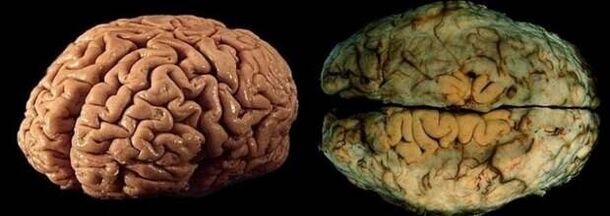
People who like to drink, the brain changes - it becomes ulcerated, scarred and edematous, blood vessels dilate, rupture in some places, cysts appear on dead areas. These consequences once again demonstrate the negative effects of alcohol at any dose on the human body.
Effects of alcohol on the nervous system and the psyche
Alcoholics need to know how alcohol affects their mental health. Frequent drinking of alcoholic beverages, especially in excessively high doses, leads to psychological destruction. A person's character and behavior completely change, mental and moral degradation begins. Alcohol and the nervous system interact to destroy personality. Alcohol's effect on sleep can lead to insomnia. There are other significant consequences - psychosis and a violation of the full perception of reality. Alcohol is bad for memory, concentration and motor coordination. Since then, the effect of alcohol on the human spirit causes great harm to the whole body.
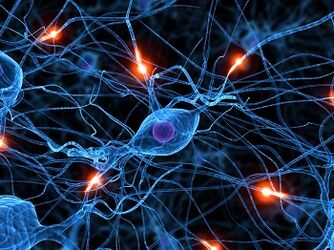
It is necessary to understand in more detail why alcohol is harmful to people's mental health. The harmful effect of alcohol on the human body and the nervous system in particular is to make nerve fibers damaged and their electrical conductivity worse, in medicine such a violation is called polyneuritis. terrible. A person loses sensitivity to pain and temperature changes, has numbness in the legs and arms, weakness and "cottoniness". Other signs: swelling, increased sweating, "goosebumps" on the skin, itching and burning, severe pain, muscles that appear to be constricted, like a pin prick.
The most common central nervous system effects of alcohol consumption are:
- Delusion image. It is worth knowing why such a situation is dangerous. It occurs after prolonged cessation of alcohol use, accompanied by hallucinations, delirium, lethargy, suicidal tendencies;
- Encephalopathy. Caused by severe vitamin B deficiency in chronic drinkers. Her symptoms are vision and vestibular problems, confusion;
- Alcohol-induced dementia syndrome. Loss of basic mental abilities, problems with counting, speaking, perception, concentration, memory;
- Alcoholic epilepsy. It manifests itself in convulsions and seizures in a hangover state;
- Korsakov's psychosis. Loss of sensation in the extremities is associated with significant memory impairment.
Undoubtedly, the mental consequences of alcoholism lead to her personality deterioration, her psycho-behavior disturbed.
Cardiovascular problems
Alcohol is harmful to the health and normal functioning of the heart muscle. Heart disease is one of the most common causes of death among drinkers.
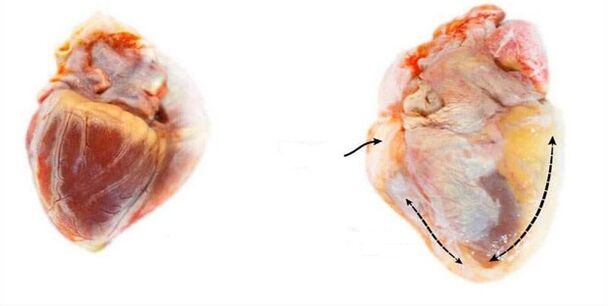
This muscular organ can expand in volume with frequent exposure to alcohol. In addition, the consequences of high doses of alcohol are cardiac arrhythmias, increased risk of developing hypertension, myocardial infarction, stroke, ischemic heart disease, and atherosclerosis.
Kidneys and alcohol
The kidney is a very important organ. It works as follows: it removes fluid from the body, cleanses the blood of harmful substances, and participates in metabolism. Regular consumption of alcoholic beverages forces the kidneys to work at maximum intensity.
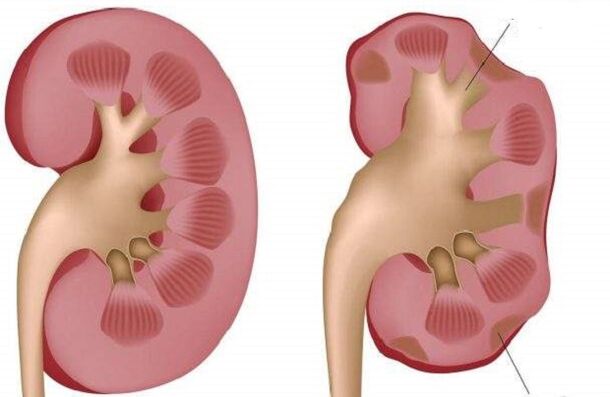
This threatens with a variety of pathological conditions - dehydration, metabolic disorders, intoxication, the appearance of stones, pyelonephritis, the development of renal failure, inflammation of the urinary tract, the appearance ofcancer.
How does alcohol affect the digestive tract?
Alcoholic beverages are toxic to the digestive system. The walls of the esophagus are affected, heartburn appears, the vomiting reflex is enhanced, the vessels in the esophagus become thinner and wider, and during vomiting, rupture of the vein wall can occur, causingbleed.
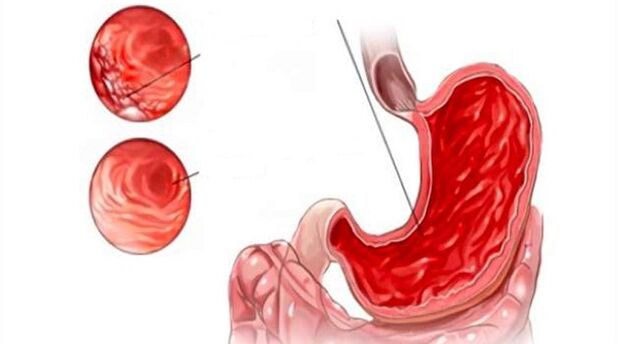
In addition, alcohol causes irreversible damage to the protective lining of the stomach. As a result, the organ is prematurely aged and functions are impaired. Typical diseases of people who drink often are gastritis, ulcers and even stomach cancer.
Effects of alcohol on immunity
Information on how alcohol affects immunity is twofold. Drinking in moderation can help you cope better with colds. However, with more frequent drinking, a person's immunity is suppressed.
Reduced immunity is manifested by a decrease in the amount of a special protein - lysozyme, which is part of saliva, tears and other secretions. This protein neutralizes harmful bacteria that enter the body and prevents the development of various infectious diseases. As such, we can confidently assert that alcohol lowers immunity.
Effects of alcohol on joints and muscles
Muscle tissue is subject to any dose of alcohol, which is very harmful to muscle health. It slows down or completely stops the growth of muscles, they atrophy, shrivel, alcohol can even destroy them completely. This can increase body fat stores. Wine and matching are not compatible concepts. The effect of alcohol on the health of the bone system is very significant, because it destroys bone tissue, excretes calcium from the body, rapidly aging bones, fragile and often fractures. After drinking alcohol, the joints often hurt.
Joint problems are common in the lives of alcoholics. People who drink alcohol regularly develop arthritis, an inflammation of the joints. Signs of arthritis: the joints begin to hurt, especially the knees. After another bout, the pain intensified.
Alcohol retains fluid in the body, edema appears, uric acid is no longer excreted normally and accumulates in the form of salt deposited in the joints, causing gout. Excess fluid enters the joint, presses against the wall of the joint cavity, touches the nerve fibers, pain appears in various joints after drinking alcohol. Over time, due to the impact of alcoholic beverages, deformation and complete destruction of joint structures occur.
How does alcohol affect your appearance?
An alcoholic is easy to spot in a crowd. Typical drinking patterns:
- blue of the nose;
- facial redness and swelling;
- bags under your eyes;
- bruising from a bruise or a fall;
- sloppy clothes;
- messy hair.
The effect of alcohol on the skin is also negative. Red color appears, this is explained by increased blood flow under the influence of alcohol. The large load on the vessels causes them to hurt, the small capillaries burst, which causes bruising in the form of blue and red dots on the face. Bluish skin is the result of severely damaged blood vessels, blood does not supply oxygen well to these areas.

To remove alcohol from the body, a large amount of fluid is involved, dehydration takes place, a person who has drunk a lot of alcohol feels strong thirst, trying to quench it. Fluid builds up and is eliminated slowly, as the body tries to protect itself from repeated dehydration and creates a reserve of water, from which the face and other parts of the body swell.
Effects of alcohol on the endocrine system
Alcohol and its effect on human health is also related to the work of the hormonal system. Its main organs:
- Thyroid (regulates metabolism);
- Pituitary gland and hypothalamus (controls the work of the entire system);
- Pancreas (responsible for insulin production);
- The pineal gland (produces hormones that affect sleep, blood circulation, and the nervous system);
- Adrenal glands (production of adrenaline);
- Thymus (regulates the growth and development of immune cells);
- Gonads (produces male and female hormones).
The effect of alcohol on the thyroid and other organs of the endocrine system is that it reduces the production of some hormones and increases the production of others. For example, in men there is a predominance of female hormones and a decrease in the level of male hormones. The opposite is true for women who drink alcohol. Hormonal disorders adversely affect the state of the entire organism. Several endocrine diseases are associated with congenital genetic mutations, and these mutations also often arise from excessive alcohol consumption. The normal interaction of alcohol and the thyroid, as well as other endocrine organs, is not possible.
How can alcohol affect the spleen?
Usually, the spleen is painful due to regular alcohol consumption. This organ plays a role in using old and damaged blood cells in the body. It is a reserve "store" of blood, which, if necessary, will supply the vessels of the circulatory system. In addition, this organ cleans the blood from pathogenic microorganisms.

Pain in the left hypogastrium can signal spleen problems from drinking too much alcohol. It is easy to explain why drinking is dangerous and why the spleen hurts. Usually, this organ is enlarged, spleen infarction, abscess, in severe cases may also require removal of this organ. The consequences of excessive consumption of any type of alcohol can severely disrupt the functioning of the spleen and lead to death.
Affects the respiratory system
Alcohol drinkers should know how alcohol affects lung health. Alcohol vapor affects the lining of the respiratory tract, contributes to the development of pneumonia, bronchitis, chronic pharyngitis and laryngitis (thus causing hoarseness in drunk people). Moreover, these diseases are difficult to cure and long lasting. Pneumonia can flow into pulmonary fibrosis (scleroderma of lung tissue). Alcohol in the blood causes the destruction of lung tissues and their pathological dilation (emphysema).
As an example of the lungs, one can see the irreparable harms that alcohol does to the human body. Large doses of alcohol depress the respiratory function of the lungs, in some cases leading to complete cessation of breathing. Delirium is often accompanied by inflammation and pulmonary edema. There is also a link between alcohol and the occurrence of lung cancer.
Effects of alcohol on human vision
Not everyone knows for sure if alcohol is bad for vision and why alcoholics experience eye pain. Under the influence of alcohol, intracranial pressure increases. This causes the blood vessels of the eyes to be damaged and small innumerable hemorrhages, the oxygen supply to the muscles is interrupted, they are in a constant state of tension. The consequences of this condition can be atrophy of the eyeball muscle and impaired vision quality.
In addition, alcohol can affect the nerve fibers of the orbit, disrupting the function of the optic nerve. The most serious effect of alcohol on the visual system is blindness.
Alcoholism and its consequences have a devastating effect on the body, and the mentality can also change dramatically. Only by stopping drinking can you stop the process that wreaks havoc on your body.

































